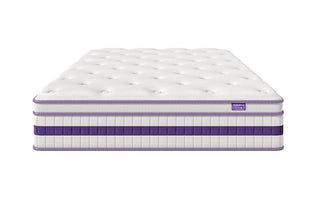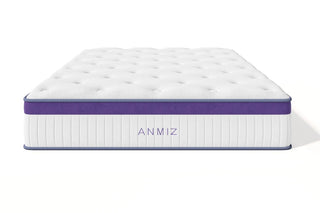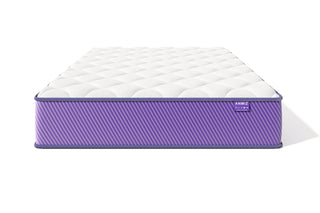Many people wake up tired and achy without realizing their mattress may be the cause. When you need to replace a mattress, it is not only about getting something new. It is about improving sleep quality, physical comfort, and long-term health. The right mattress supports spinal alignment, maintains muscle relaxation, and allows the body to recover during sleep. When a mattress no longer performs these functions, it’s time to evaluate replacement options.
- 1. Why the Decision to Replace a Mattress Matters
- 2. How Long a Mattress Typically Lasts
- 3. Signs That It’s Time to Replace a Mattress
- 4. How Mattress Materials Influence Replacement Timing
- 5. The Role of Sleep Position in Replacement Needs
- 6. Sleep Quality Decline and Sleep Cycle Disruption
- 7. When Not to Replace a Mattress
- 8. How to Choose a New Mattress
- 9. Budget Considerations When Replacing a Mattress
- 10. How to Dispose of or Donate Your Old Mattress
- 11. Common Mistakes When Replacing a Mattress
- 12. How Sleep Environment Enhances a New Mattress
- 13. FAQs
- 14. Conclusion
Why the Decision to Replace a Mattress Matters
Sleep plays a crucial role in physical and mental well-being. A worn-out mattress may disrupt rest, contribute to back pain, and reduce sleep efficiency. When considering whether to replace a mattress, think about how you feel when you wake up. Persistent discomfort, soreness, or fatigue may signal that the mattress no longer supports your body properly.
Additionally, the structural materials inside a mattress gradually break down. Springs weaken, foam compresses, and fibers shift. These changes reduce the ability to evenly distribute body weight. Over time, this leads to pressure points, muscle tension, and disturbed sleep cycles.
Replacing a mattress is not just a comfort upgrade. It is a health investment.
How Long a Mattress Typically Lasts
A typical mattress lasts about 7–10 years. However, lifespan varies based on materials and usage patterns. Latex tends to last longer, while low-density foam may degrade faster. Heavier use, such as nightly sleeping by two people, may shorten its lifespan. A mattress in a guest room may last significantly longer because it experiences less pressure and motion.
If a mattress shows visible sagging, compressed areas, or uneven support, it may be beyond its functional lifespan even if it is younger than expected.
Signs That It’s Time to Replace a Mattress
You Wake Up With Pain
Morning back or hip pain often comes from poor spinal alignment. If stretching or activity relieves this pain quickly, your mattress may be the cause.
Visible Sagging or Indentations
If the mattress has dents where you usually sleep, it is no longer evenly supporting your body.
Increased Allergies or Respiratory Issues
Mattresses accumulate dust mites and allergens over time. Even with cleaning, internal buildup increases with age.
You Sleep Better Somewhere Else
If you sleep more comfortably in a hotel or another bed, your mattress may no longer be providing adequate comfort.
Noise or Structural Movement
If the mattress squeaks or shifts, the internal support system may be degrading.
These signs indicate that it may be time to replace a mattress to restore healthy, restful sleep.
How Mattress Materials Influence Replacement Timing
Memory Foam
Foam gradually softens with heat and weight exposure. When foam remains compressed instead of returning to its original shape, support is reduced.
Latex
Latex mattresses are durable and resist compression. They generally last longer and maintain resilience.
Innerspring
Springs can lose tension over time. This leads to increased motion transfer and uneven support.
Hybrid
Hybrid mattresses include foam and springs. Their longevity depends on the quality of both components.
Understanding material behavior helps predict when replacement may be necessary.
The Role of Sleep Position in Replacement Needs
Back Sleepers
Back sleepers need a balance of support and cushioning. When the mattress loses firmness, back alignment suffers.
Side Sleepers
Side sleepers require more pressure relief at the shoulders and hips. When a mattress becomes too firm, discomfort increases.
Stomach Sleepers
Stomach sleepers need consistent support to avoid lower back strain. Sagging mattresses greatly affect this group.
If your sleep position no longer feels natural or comfortable, the mattress may no longer be supporting your preferred alignment.
Sleep Quality Decline and Sleep Cycle Disruption
When a mattress loses support, the body shifts position more often during the night. This reduces sleep continuity. Instead of reaching deep restorative sleep stages, the sleeper experiences fragmented rest.
Chronic sleep disruption may lead to:
- Increased daytime fatigue
- Lower concentration
- Mood fluctuations
- Reduced immune function
Replacing a mattress helps restore natural sleep rhythms and energy.
When Not to Replace a Mattress
There are cases where replacement may not be necessary yet:
- The mattress is under five years old and still feels supportive.
- Discomfort is caused by bedding, pillows, or stress.
- A mattress topper can improve comfort temporarily.
Before deciding to replace a mattress, evaluate whether minor adjustments can improve comfort.
How to Choose a New Mattress
Determine Firmness Needs
Firmness preference depends on body weight, posture, and personal comfort.
Evaluate Support System Quality
A supportive mattress keeps the spine neutral. Look for lasting structural integrity in the core materials.
Test Pressure Relief
This can be done by lying down for several minutes and checking whether pressure points form.
Consider Motion Transfer
If you share a bed, choose a mattress that limits motion disturbance.
The right mattress will feel comfortable, stable, and supportive in your natural sleep posture.
Budget Considerations When Replacing a Mattress
Mattresses range widely in price. Higher cost often reflects better materials and longer lifespan. However, some affordable options provide excellent comfort.
Factors that Influence Price:
- Brand reputation
- Material type
- Thickness and layer composition
- Manufacturing quality
A realistic budget prevents overspending, while still allowing for a mattress that supports health and rest.
How to Dispose of or Donate Your Old Mattress
When you replace a mattress, you need a plan for the old one.
Donation
If the mattress is clean and structurally sound, consider donating it to a community organization.
Recycling
Many areas have mattress recycling programs that break down materials for reuse.
Pickup Services
Some retailers remove old mattresses when delivering new ones.
Avoid leaving mattresses outdoors, where they become unsanitary and difficult to move.
Common Mistakes When Replacing a Mattress
- Choosing based solely on softness
- Ignoring your individual sleep needs
- Not testing the mattress long enough
- Forgetting to replace pillows and bedding for complete support
A mattress should support your full rest environment, not just the surface below you.
How Sleep Environment Enhances a New Mattress
Once you replace a mattress, optimizing the sleep environment further improves rest.
Light Levels
Dim lighting before bed supports melatonin production.
Temperature
Cooler rooms enhance sleep quality.
Noise Control
White noise or quiet environments reduce sleep interruptions.
Combining a supportive mattress with a healthy sleep environment creates a strong foundation for restorative sleep.
FAQs
Q: How often should you replace a mattress?
A: Most mattresses should be replaced every 7–10 years. However, comfort, support, and visible wear are more accurate indicators than age alone.
Q: Can a mattress topper replace the need for a new mattress?
A: A mattress topper can improve surface comfort, but it cannot fix sagging or loss of internal support. If structural wear exists, replacement is necessary.
Q: What is the best time of year to replace a mattress?
A: Mattress sales often occur during major holidays or seasonal transitions. Planning ahead can help you find better pricing.
Q: Does your body need time to adjust to a new mattress?
A: Yes. It may take several days or weeks to adapt. During this time, muscles and joints realign to the new support level.
Q: Can a mattress cause long-term physical pain?
A: Yes. Poor sleep posture can strain muscles and joints, contributing to chronic discomfort. Replacing the mattress may relieve symptoms.
Conclusion
The choice to replace a mattress affects more than nightly comfort—it influences overall health, mood, and daily performance. When a mattress loses support or no longer provides restorative rest, replacing it becomes a meaningful step toward improved well-being. By evaluating mattress condition, selecting the right firmness, and building a supportive sleep environment, you can create a foundation for restful, rejuvenating sleep that enhances daily life and long-term wellness.












